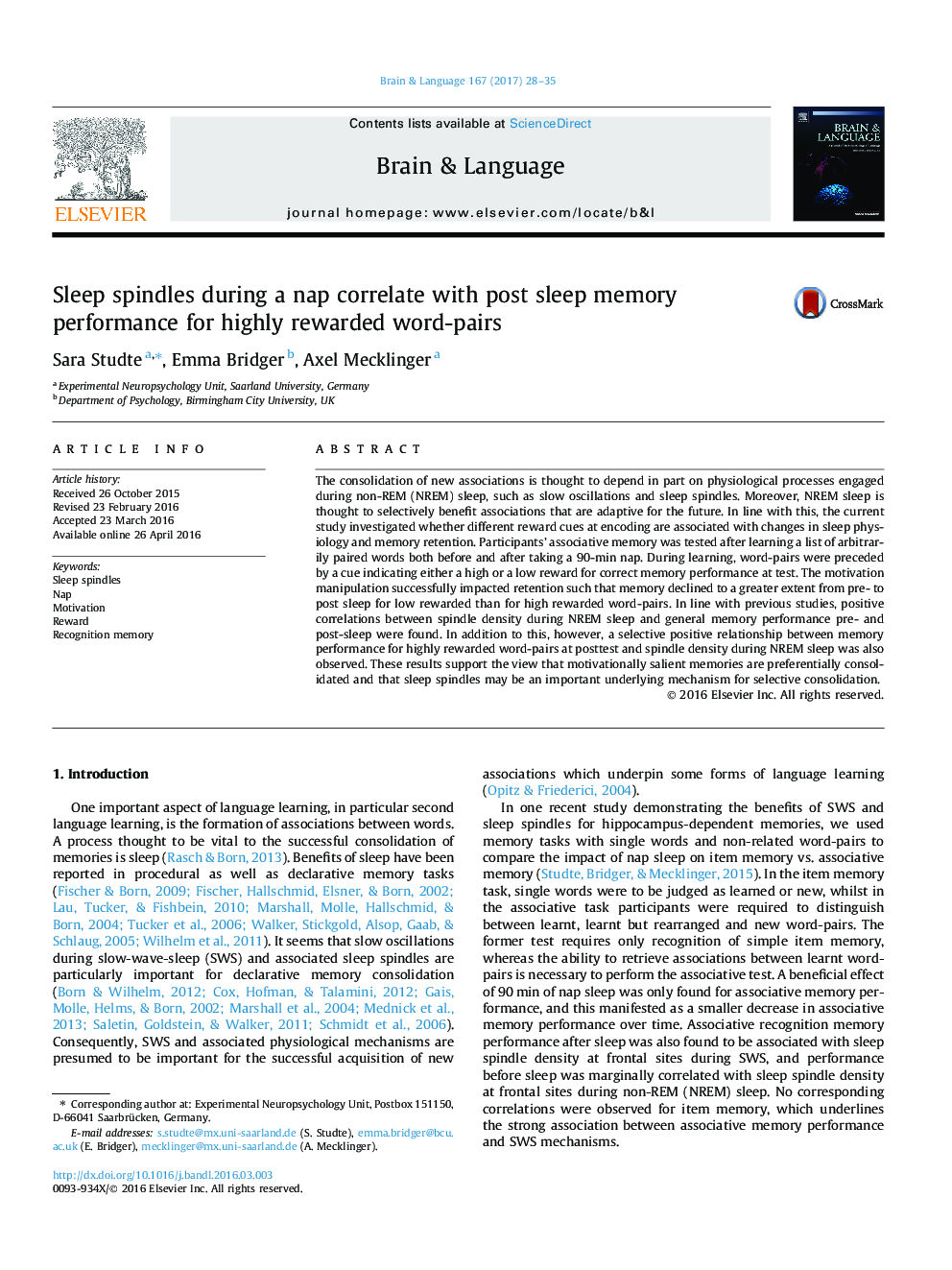| Article ID | Journal | Published Year | Pages | File Type |
|---|---|---|---|---|
| 5041374 | Brain and Language | 2017 | 8 Pages |
â¢Nap sleep benefits high but not low rewarded information.â¢Spindle density correlates with high reward memory retention post-sleep.â¢Spindle density correlates with overall memory performance pre- and post-sleep.
The consolidation of new associations is thought to depend in part on physiological processes engaged during non-REM (NREM) sleep, such as slow oscillations and sleep spindles. Moreover, NREM sleep is thought to selectively benefit associations that are adaptive for the future. In line with this, the current study investigated whether different reward cues at encoding are associated with changes in sleep physiology and memory retention. Participants' associative memory was tested after learning a list of arbitrarily paired words both before and after taking a 90-min nap. During learning, word-pairs were preceded by a cue indicating either a high or a low reward for correct memory performance at test. The motivation manipulation successfully impacted retention such that memory declined to a greater extent from pre- to post sleep for low rewarded than for high rewarded word-pairs. In line with previous studies, positive correlations between spindle density during NREM sleep and general memory performance pre- and post-sleep were found. In addition to this, however, a selective positive relationship between memory performance for highly rewarded word-pairs at posttest and spindle density during NREM sleep was also observed. These results support the view that motivationally salient memories are preferentially consolidated and that sleep spindles may be an important underlying mechanism for selective consolidation.
